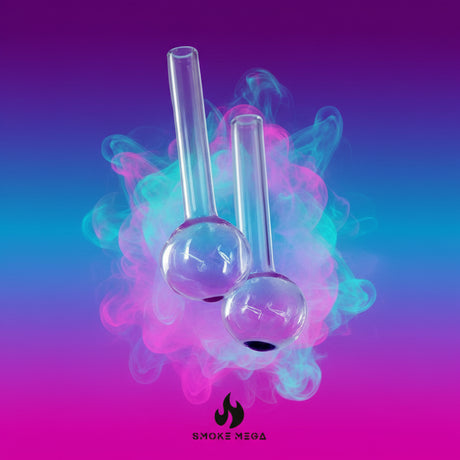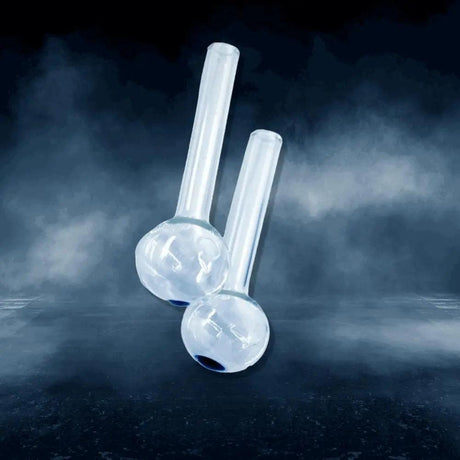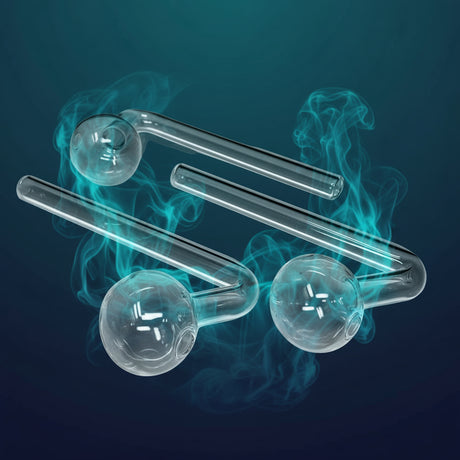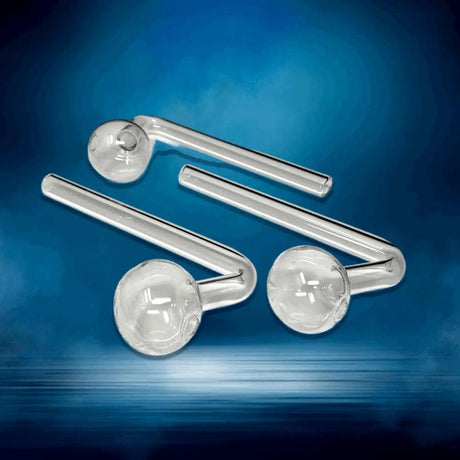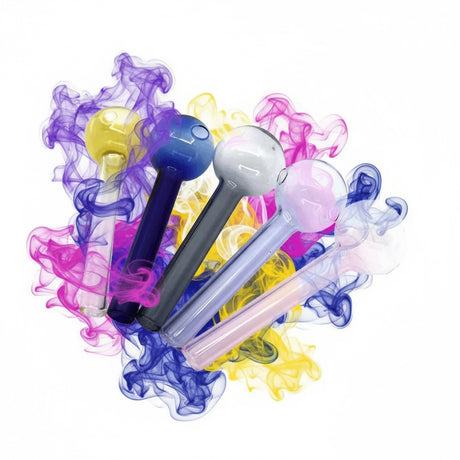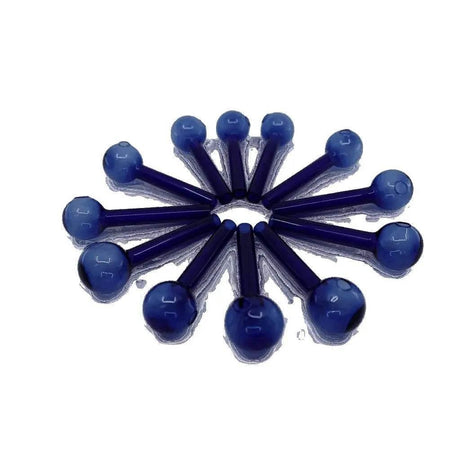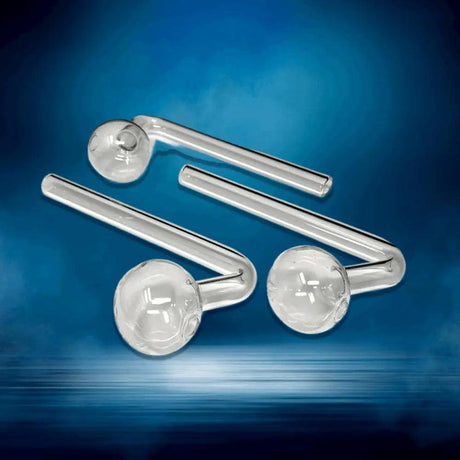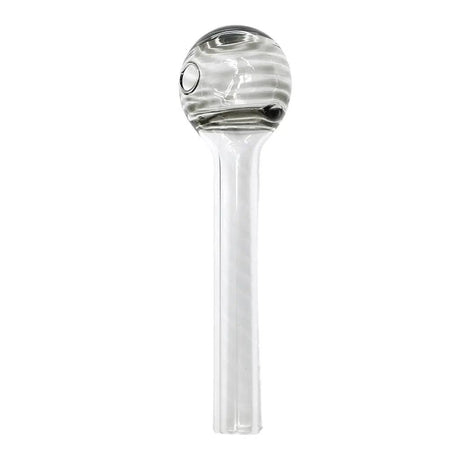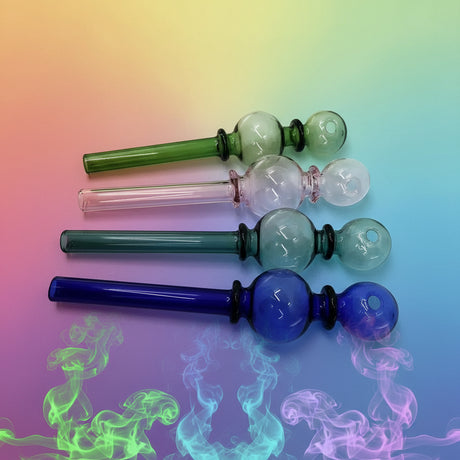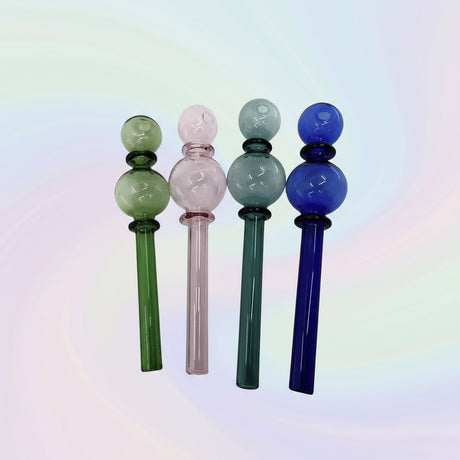Recent Posts
9 Best Quartz Banger Upgrades Under $20 in 2026 (Kits, Slurpers & More)
Published on January 09, 2026
How to Turn a Bong Into a Dab Rig (And Vice Versa)
Published on December 23, 2025
Quartz Banger vs. Traditional Dab Nail: Which Should You Buy?
Published on November 22, 2025
The Ultimate Thanksgiving & Friendsgiving Gift Guide: Perfect Picks for Every Budget
Published on November 12, 2025
Cyber Monday Steals: Top Bongs, Dab Rigs, and Oil Burners for the Best Value
Published on November 12, 2025
The Ultimate Black Friday Stocking Stuffer Guide (Awesome Gifts Under $30)
Published on November 12, 2025
How Often Should You Change Bong Water

CP SMOKE MEGA |
Ever considered the hidden contaminants in your bong water from just a single session? As connoisseurs know, the clarity of your bong water isn't just about aesthetics—it's a matter of health and the quality of your experience. According to recent studies, untouched bong water can harbor harmful bacteria and fungi within just 24 hours.
Historically, many users only changed their bong water when it visibly appeared dirty. However, modern recommendations have shifted towards more frequent changes. Experts now suggest swapping out bong water daily to maintain optimal hygiene and flavor, enhancing both the safety and enjoyment of each hit.
The Importance of Regular Bong Water Changes
Regularly changing bong water is crucial for maintaining a clean smoking device. Dirty bong water can lead to a buildup of bacteria, mold, and other harmful microorganisms. This contamination can negatively impact your health in the long run.

Besides health concerns, fresh bong water significantly enhances your smoking experience. Clean water helps filter out toxins and debris, providing smoother hits. It also preserves the flavor of your herbs or tobacco.
Maintaining clean bong water can also prolong the life of your bong. Dirty water can cause residue and stains, which are harder to clean over time. Frequent water changes make cleaning easier and protect your investment.
A noteworthy benefit is the reduction of unpleasant odors. Stale water smells bad, affecting your overall experience. Changing bong water regularly ensures a more pleasant aroma and cleaner hits.
Health Benefits of Clean Bong Water
Ensuring your bong water is clean can help prevent respiratory issues. Dirty water can harbor bacteria and mold, which you might inhale. Breathing in these contaminants can cause throat and lung irritation.
Using clean water reduces the risk of coughing fits and infections. When the water is dirty, it fails to filter out harmful particles effectively. Clean water, on the other hand, captures more impurities.
Regular water changes also help to reduce tar exposure. As smoke passes through clean water, more tar gets trapped. This leads to a less harsh and safer smoking experience.
Enhancing the Flavor of Your Smoke
Using fresh water can enhance the natural flavors of your smoking materials. Dirty water can add a foul taste to each hit, ruining the experience. Clean water keeps the taste pure and enjoyable.
For those who appreciate the nuances of different strains, clean water is essential. It ensures you get the most accurate taste profile. Each hit is as flavorful as intended by the grower or manufacturer.
Regularly changing the water also removes any bitter aftertaste. Stale water can leave your mouth feeling unpleasant. Keeping it fresh ensures every hit is smooth and delightful.
Practical Tips for Maintaining Clean Bong Water
Make it a habit to change your bong water after each session. This practice minimizes the time contaminants have to build up. It keeps your bong fresh and ready for each use.

Use filtered or distilled water to further enhance cleanliness. Tap water sometimes contains minerals and chemicals that can leave residue. Filtered water minimizes these risks and provides a cleaner hit.
Clean your bong regularly alongside changing the water. Regular cleaning removes any stubborn stains or residue. Combine these practices for optimal performance and longevity of your bong.
The Impact of Bong Water on the Flavor and Smoothness of the Smoke
Clean bong water is essential for optimizing the flavor and smoothness of your smoke. Stale water can make your smoke taste bitter and unpleasant. Fresh water preserves the natural flavors of your herbs or tobacco.
When you use clean water, you ensure a smoother hit. Dirty water fails to filter out impurities effectively. This can lead to harsher, scratchy smoke that irritates your throat and lungs.
Changing the water regularly helps to reduce the buildup of tar and resin. Clean water acts as a better filter, capturing more toxins. This results in a cleaner, more enjoyable smoking experience.
Using filtered or distilled water can further enhance the smoothness. Tap water sometimes contains minerals and chemicals. Filtered water ensures that what you inhale is as pure as possible.
How Dirty Bong Water Affects Flavor
Old, dirty bong water can drastically alter the taste of your smoke. The stale water infuses every hit with an unpleasant flavor. This can ruin the experience, especially for those who enjoy the subtle flavors of different strains.
A foul smell often accompanies dirty water, further diminishing the smoking experience. This smell can stick to the smoke, making it taste worse. Regular water changes help you avoid this issue.
For the best flavor, make it a habit to use fresh water every time. This practice ensures that your bong delivers the most natural and enjoyable taste. It also makes each session more pleasurable and satisfying.
The Role of Water in Filtering Toxins
One of the key benefits of using water in a bong is its filtering ability. Clean water helps trap more toxins, making the smoke less harmful. When the water is old, it’s less effective at filtering out impurities.

Dirty water allows more harmful substances to pass through, leading to a harsher hit. These impurities can irritate your throat and lungs, making the experience less enjoyable. Changing the water frequently maintains its filtering capabilities.
Using distilled or filtered water can enhance this effect even more. These types of water are free of additives that could leave residues. This ensures that your smoke is as clean and smooth as possible.
Practical Tips for Maintaining Flavor and Smoothness
To preserve the flavor and smoothness of your smoke, change the bong water after every session. Consistently replacing the water ensures you get the best taste each time. It also prevents the build-up of unpleasant flavors and smells.
Consider investing in a water filter system for your bong. This can make the process of maintaining clean water easier. Filtered water provides an extra level of cleanliness compared to tap water.
Regularly clean your bong in addition to changing the water. Cleaning removes the residue that dirty water leaves behind. This keeps your device in top condition and ensures a smooth, flavorful smoke every time.
How Often Should You Change Your Bong Water?
For the best experience and health, change your bong water daily. Regularly refreshing the water helps to avoid a build-up of harmful bacteria and mold. Daily changes ensure a cleaner and safer smoking session.
Some users prefer to change the water after every session. This practice guarantees the freshest possible smoke and the best flavor. Each session feels like a fresh start with clean water every time.
If you’re a heavy user, consider changing the water more frequently. The more you use the bong, the faster the water gets dirty. Frequent changes help maintain optimal performance and flavor.
Observe the water for signs of cloudiness or discoloration. When the water looks dirty, it’s time to change it. Staying alert to these signs helps maintain a healthier and more enjoyable smoking experience.
Steps to Clean Your Bong and Change the Water
Keeping your bong clean ensures a better smoking experience. To start, gather your cleaning supplies. This includes isopropyl alcohol, coarse salt, and clean water.

First, empty the old water from your bong. Dispose of it down the sink, taking care not to spill. Rinse the bong with warm water to remove loose debris.
Next, add isopropyl alcohol and coarse salt. The alcohol helps dissolve resin, while the salt acts as an abrasive. Swirl the mixture around the bong, targeting areas with buildup.
Once the bong is scrubbed, rinse it thoroughly with warm water. Make sure to remove all traces of alcohol and salt. Rinse until the bong no longer smells like alcohol.
Finally, dry your bong completely before adding fresh water. Use a lint-free cloth to avoid leaving fibers. Once dry, fill the bong with clean, filtered water and enjoy your next session.
Consider maintaining a regular cleaning schedule. This prevents tough buildup and keeps your bong in top shape. Clean your bong weekly or more often if you use it frequently.
The Consequence of Neglecting Bong Water Change
Failing to change bong water regularly can lead to serious health risks. Stale water acts as a breeding ground for bacteria and mold. Inhaling these contaminants can cause respiratory issues and infections.
Moreover, dirty bong water can degrade the quality of your smoking experience. Old water causes the smoke to taste bitter and unpleasant. This directly impacts the flavor and smoothness of every hit.
Over time, neglecting to change the water can result in stubborn resin buildup. This makes your bong harder to clean. A dirty bong is not only unsightly but can also affect its functionality.
Continued use of dirty water shortens the lifespan of your bong. The buildup can cause materials to deteriorate faster. Regular water changes prolong the life of your device.
Stagnant water can produce foul odors that ruin the ambiance of your smoking session. These smells can linger and make the experience unpleasant. Fresh water ensures a more enjoyable and odor-free environment.

Not changing the water frequently can also cause clogs and blockage in your bong. This interrupts the smooth flow of smoke, making it harder to use. Maintaining clean water keeps your bong operating efficiently.
Frequently Asked Questions
Bong water plays a crucial role in enhancing your smoking experience. Here are some frequently asked questions to help you understand more about maintaining your bong for an optimal experience.
1. What are the health risks of not changing bong water?
Not changing bong water regularly can harbor bacteria and mold, which you inhale. This can lead to respiratory issues, infections, and illnesses over time.
The longer the water sits, the more harmful it becomes. Stagnant water is a breeding ground for unhealthy microorganisms that compromise your respiratory health.
2. Can using flavored water improve my smoking experience?
Flavored water can enhance the taste of your smoke, making each hit more enjoyable. However, be cautious as the sugar in flavored waters can cause sticky residue build-up.
This build-up can make cleaning your bong more difficult and may affect its longevity. Always rinse thoroughly after using any flavored liquid to maintain cleanliness.
3. How does dirty bong water affect the taste of my smoke?
Dirty bong water significantly alters the taste, making it bitter and unpleasant. Debris and resin trapped in old water contribute to this poor flavor quality.
Fresh water preserves the natural flavors of your herbs or tobacco, ensuring a cleaner and smoother hit every time you smoke.
4. What's the best way to clean a heavily used bong?
A heavily used bong requires thorough cleaning with isopropyl alcohol and coarse salt for scrubbing tough stains. Letting these ingredients sit in the bong before shaking them will loosen built-up residue.
You might need additional tools like brushes or pipe cleaners for intricate areas. Rinse thoroughly with warm water to ensure all remnants are removed before reuse.
5. Does the type of herb or tobacco I use affect how often I should change my bong water?
Yes, some herbs or tobaccos produce more resin and debris than others, contaminating the water faster. If you’re using particularly sticky strains, consider changing your bong water more frequently.
High tar content also speeds up contamination, making frequent changes essential for maintaining clean hits and preventing unpleasant tastes.

